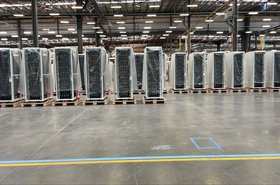QuEra has closed a $230 million funding round to support the company’s development of large-scale fault-tolerant quantum computers.
Participation came from both new and existing investors, including the Google Quantum AI business unit, SoftBank Vision Fund 2, Valor Equity Partners, QVT Family Office, and Safar Partners.
According to QuEra, of the $230m raised, $60m will be received in the “near future,” dependent on the company satisfying a prerequisite funding agreement which the company has not disclosed but says is currently in progress.
In addition to accelerating QuEra’s fault-tolerant quantum computing technology, the company said the funding will allow it to expand its workforce, strengthen its build and test capacity, and broaden its portfolio of application co-design, cloud, and on-premises engagements with global research organizations.
“This round represents a significant milestone for QuEra as we continue to deliver on our promise of scalable, fault-tolerant quantum computing,” said Andy Ory, Interim CEO of QuEra.
“Since our last funding round in 2023, we have achieved impressive scientific, technical, and commercial milestones, which have dramatically increased the value of our business. This new investment will fuel our next phase of growth, enabling us to deliver large-scale quantum solutions that address critical business challenges for our customers.”
Massachusetts-based QuEra was founded in 2018, based on research conducted at Harvard and MIT. The company operates a lab and data center near the Charles River in Boston and offers on-premise quantum systems as well as access to quantum hardware through its own cloud and Amazon Web Services.
In November 2024, the company signed a Memorandum of Understanding with the National Institute of Advanced Industrial Science and Technology (AIST).
The agreement will see QuEra establish and operate a cloud-based platform, providing remote access to the quantum computer for researchers, collaborators, and external users. The platform will be integrated with AIST’s HPC infrastructure, including the ABCI-Q supercomputer.







